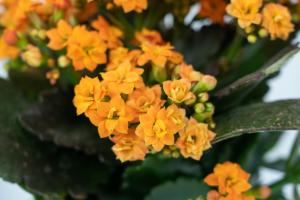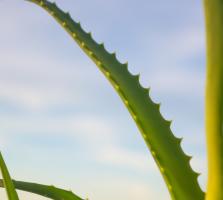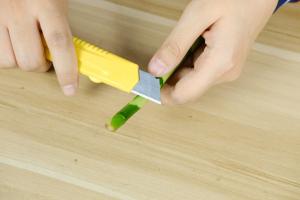Will Vinegar Water Kill My House Plant?
As a plant parent, it's natural to want to try out different methods to improve the health of your house plant. However, before trying out a new method, it's important to do your research to ensure that it won't harm your plant. One such method that has gained popularity is the use of vinegar water as a natural cleaning solution. But will vinegar water kill your house plant?
The Benefits of Vinegar Water
Before we dive into whether vinegar water will harm your house plant, let's first talk about the benefits of using vinegar water. Vinegar is a natural cleaning agent that can help remove dirt, grime, and even pests from your plant's leaves. It's also a great disinfectant that can help kill harmful bacteria and germs that can cause damage to your plant. Additionally, vinegar water can help regulate the pH levels of the soil, which can promote healthy growth for your plant.
What Type of Vinegar to Use
If you're considering trying out vinegar water on your house plant, it's important to use the right type of vinegar. White vinegar is the most commonly used type of vinegar for cleaning, but it's not the best choice for your house plants. Instead, opt for apple cider vinegar or red wine vinegar, as they are less harsh and won't harm your plant as much.
Will Vinegar Water Kill My House Plant?
The answer is both yes and no. While vinegar water can provide some benefits to your house plant, it can also harm it if used improperly. The acidity of vinegar can burn and damage your plant's leaves if used in high concentrations or too frequently. Additionally, vinegar can alter the pH levels of your plant's soil too much, which can cause nutrient deficiencies and other growth problems.
If you decide to use vinegar water on your house plant, make sure to dilute it properly. A good rule of thumb is to use a mixture of one part vinegar to ten parts water. Also, limit the use of vinegar water to once every few months to avoid overuse and potential harm to your plant.
Alternatives to Vinegar Water
If you're hesitant to use vinegar water on your house plant, there are other natural cleaning solutions that you can use instead. Mixtures of mild dish soap and water, or neem oil and water, can be effective in cleaning your plant's leaves and controlling pests. Additionally, using plain water to mist your plant can help keep it clean and hydrated.
The Bottom Line
In conclusion, vinegar water can provide some benefits to your house plant, but it's important to use it properly to avoid harm. If you decide to use vinegar water, make sure to dilute it properly and use it sparingly. Alternatively, there are other natural cleaning solutions that can be just as effective without the risk of harm. Remember, the health and wellbeing of your house plant should always be top priority.

 how many times do yo...
how many times do yo... how many planted tre...
how many planted tre... how many pine trees ...
how many pine trees ... how many pecan trees...
how many pecan trees... how many plants comp...
how many plants comp... how many plants can ...
how many plants can ... how many plants and ...
how many plants and ... how many pepper plan...
how many pepper plan...































